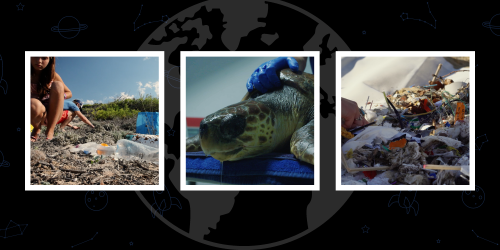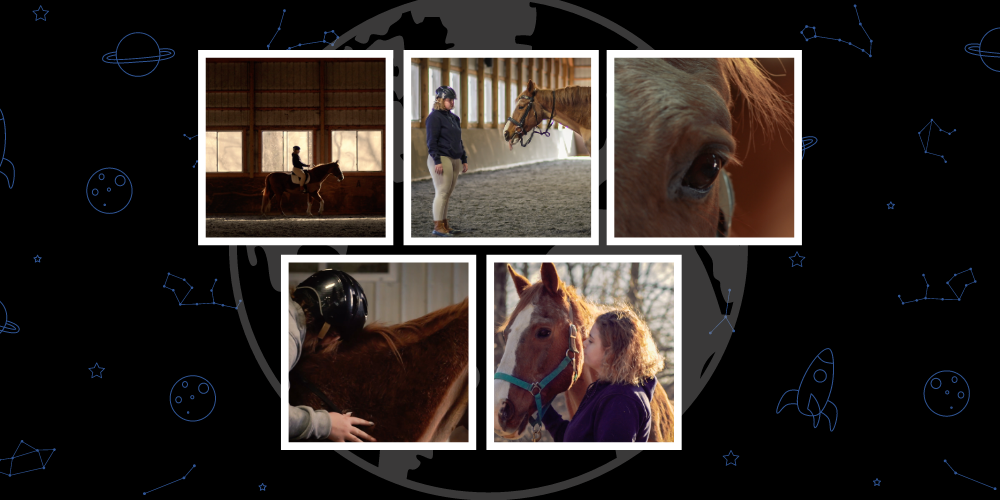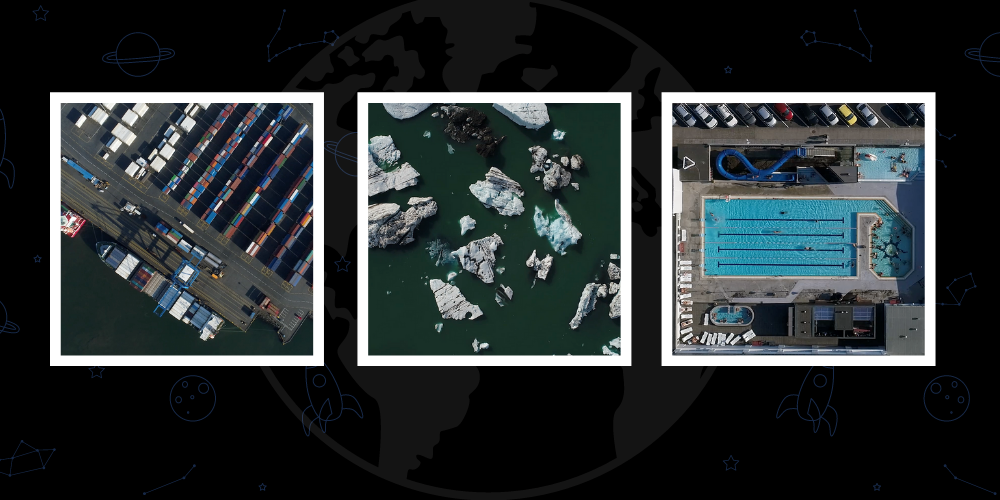Audiences can screen 塑料外 on the Planet Classroom Network this month. Written and Directed by Line Hadsbjerg, the documentary sets out to explore the devastating impact of plastic in our natural environment. The film is set in the Balearic Islands where multiple activists speak about how the sea is seen as a garbage container thanks to people’s careless “throw-away” culture of consumption. The film was initiated by Cleanwave.org and is a call to action for big businesses and individuals everywhere to recycle and clean up our world.
全球搜索教育 is pleased to welcome Director Line Hadsbjerg.
Line – Thank you for this wonderful film. The fact has been shared that by 2050, it is likely there will be more plastic than fish in the ocean. This fact may be inevitable. What are the solutions you have seen that counteract/prevent the issues from happening?
I believe there is a growing consciousness globally that single-use plastic is having a catastrophic impact on our planet. It is the sheer scale of consumption that is becoming evident across the globe: in our rivers, our seas, along our streets and in the landscape.
I see the solutions to plastic waste to be very clear:
- Legislation – Banning the production of single use plastic is the only tool that can override the corporate drive of making profits. Plastic is a growth industry – if we want to turn off the production taps – 我们必须立法。
- 备择方案 – 与禁止一次性产品密切相关, 应该给予那些发现有创造力的人支持和奖励, 可持续的替代品.
- 让污染者对他们产生的废物负责。
- 有效的废物管理 – 世界上有许多地方的街道上到处都是塑料垃圾. 几十年来,富裕国家一直在向贫穷国家倾倒垃圾, 他们中的许多人没有有效的废物管理设施来处理自己的废物, let alone the dumping of international waste.
Since big businesses are a big cause for our problem, what would you suggest is done to get them to recycle more?
I do not regard recycling as a solution. It is an important action that can be taken as part of a waste-management strategy, but it does not solve our plastic crisis. It only shifts plastic back into the consumption chain, but it does not make it disappear.
Large corporations should be given incentives to explore and use better alternatives.
How can water suppliers decrease the amount of plastic they use on bottles? What could water bottles be made of that is more environmentally friendly?
Water is life, and healthy drinking water should be easily and freely available to all living creatures. 然而, we have chosen to regard water as a “resource” – and water bottle suppliers are keen to commoditize water – rather than ensuring that our tap water is potable.
I would argue that public water fountains should be available in all cities across the world, where people can refill their sustainable, reusable water bottles for free.
Thereafter, we should be using returnable glass bottles for all water. Plastic water bottles should be banned, and if exceptions are created, a deposit system should be in place.
Please keep in mind that it takes 6 liters of water to produce a 1 liter plastic water bottle.
If we asked you to create an action list of the most important tasks that everyone who watches your film can do to limit the amount of plastic in oceans and on beaches, what would that list look like?
- Pick up the trash that you see on the beaches and in the landscape and streets where you live.
- Always carry a water bottle with you that you can refill.
- Try to avoid buying your fruit and vegetables in plastic packaging – support the ZERO WASTE stores.
- Take a reusable bag with you.
- Buy local.
The arts and storytelling are a powerful way to promote positive societal change. What are you working on next?
There is great power in visual storytelling. I am working on a new ocean film – bringing ocean lovers together for the love of the ocean.
Thank you Line!
C.M. Rubin and Line Hadsbjerg
不要错过 塑料外, 现在在 Planet Classroom Network 上放映.







最新评论